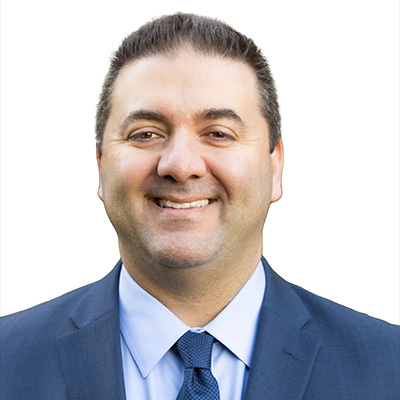Understanding the Law for Car Accidents. What’re the Basics?
“Law for car accidents” refers to the legal principles that specify who is responsible for the injuries and property damage brought on by a traffic incident. This component of the law deals with the concepts of negligence as they are applied to this specific category of personal injury cases. Similar to other situations where negligence law is applicable, the litigation surrounding auto accidents is virtually exclusively determined by state law.
Law for Car Accidents. Legal Advice.
The initial step after an automobile accident should be to refrain from blaming anyone. Despite how simple this may seem, admitting fault is the biggest error potential litigants make right after a collision. The rules of evidence often forbid “hearsay” or utterances made outside of court. Admissions are an exception to this rule, though. Even a simple apology could be turned against you. On the other hand, it’s crucial to record any comments made by the other driver.
Gather all the details you can regarding the accident using all means at your disposal. Note the other driver’s name, address, license number, and insurance details first.
Additional evidence that should be kept is contact information for witnesses, descriptions of the road, traffic, weather and pictures of the vehicles. Record the scene of the collision from a distance and up close, noting out features like crosswalks and traffic lights.
Be sure to write down the names of the police officers as well to make it easier to get copies of their reports.
Never forget how important it is to get emergency medical help. Whiplash is a common result of car accidents, and it can result in ailments that the person may not notice right away but that worsen with time. If you’re a possible plaintiff in a negligence lawsuit, you don’t want the defense lawyer for the at-fault motorist to minimize the severity of your wounds because you didn’t believe it was critical to seek immediate medical assistance.
The most crucial action a victim may take following a car accident to safeguard their entitlement to compensation is to get in touch with a personal injury attorney. Contact our experts if you need help as soon as you can. If you do not retain legal representation, you will be on your own and vulnerable to the insurance company’s tactics. You can be forced to give up other rights or accept an unfavorable settlement by the adjuster. A lawyer should always be consulted before signing anything.
What Are Your Rights? According to the Law for Car Accidents
One of the earliest rights was the ability to defend oneself against accusations that you caused a car accident. Whether or not you believe you contributed to the collision, resist any pressure from the other driver or the insurance company to admit fault. Let the insurance companies or the courts decide who is to blame.
Subject to adhering to the policies and procedures for auto accidents, you also have the right to request the details of the other driver, including their name, contact information, and insurance information. If the other driver won’t cooperate, note their license plate, the details of their car, and how they appear to the police.
Traffic accident law prohibits leaving the scene of an accident. Leaving the scene of an automobile accident may result in fines and possibly legal action.
Proving Negligence After a Car Accident
If the aggrieved party can demonstrate the offender’s fault, they may be able to recover damages from them in states that adhere to traditional misdeed risk criteria. The majority of cases hinge on proving negligence, which calls for the aggrieved party to show the litigant’s duty to the aggrieved party, the respondent’s breach of duty, true and widespread causation, and actual harms. Our attorneys are eager to help and represent you in the court. Schedule a free call with our experts and we can start your case now!
In general, it is everyone’s duty to keep pedestrians and other drivers safe whether operating a vehicle on the road or while operating a boat on the water. This duty of care requires that you behave while driving to prevent avoidable harm to other persons. Breach of duty can include driving while inebriated, texting or chatting on the phone while driving, driving when tired, applying makeup while driving, or participating in any other activity that takes one’s focus off the road or violates a traffic law.
If you are in an automobile accident, you ought to contact the other driver and obtain their insurance information, a right given by the law of accident. You should also write down the contact information of any witnesses to the accident and give it to your lawyer or insurance provider. It’s crucial to avoid admitting that you think the collision was your fault to the other motorist, any witnesses, or a representative of the other driver’s insurance company.
Defenses to Motor Vehicle Accident Cases
According to laws on car accidents, there are many defenses you can employ when someone sues you for personal injuries in a case involving a motor vehicle incident. Various states adhere to the principles of pure comparative negligence, modified comparative negligence, and contributory negligence.
Pure Comparative Negligence:
In states that follow pure comparative negligence, such as California, a plaintiff’s recovery is diminished proportionately to their degree of fault, even if they were 99% at fault. Let’s say a fatigued motorist was weaving in and out of automobiles when a truck driver decided to cut them off. The upshot of the crash that the exhausted driver causes is several shattered bones, wounds, and a herniated disc. If a weary driver files a lawsuit, the truck driver may argue comparative negligence. The jury will place equal blame on the truck driver and the weary driver.
Modified Comparative Negligence
If the damages total $200,000, the truck driver is 55% at fault, and the fatigued motorist is 45% at fault, the fatigued driver will be entitled to $110,000 from the truck driver.
In jurisdictions that use modified comparative negligence, the amount of the plaintiff’s recovery is diminished, but only to a specific extent. 21 states, including Massachusetts and Wisconsin, follow the 51% bar. According to this law, a plaintiff cannot be compensated if they are at least 51 percent at blame. If he or she bears less than 50% of the blame, the recovery amount is diminished by that percentage. Twelve states, including Georgia and Maine, follow the 50% bar.
A person who was at least partially at fault cannot receive compensation under this regulation. If a plaintiff was only 49% at fault, they could still receive their money back, but their recovery would be less.
Contributory Negligence
In states with contributory negligence, a plaintiff cannot receive compensation even if they are found to be just 1% at fault. In some areas, like Maryland, obtaining damages after an automobile accident can be exceptionally difficult.
Have questions about what Negligence applies to your case? Contact our experts now and we will clear all uncertainties.









